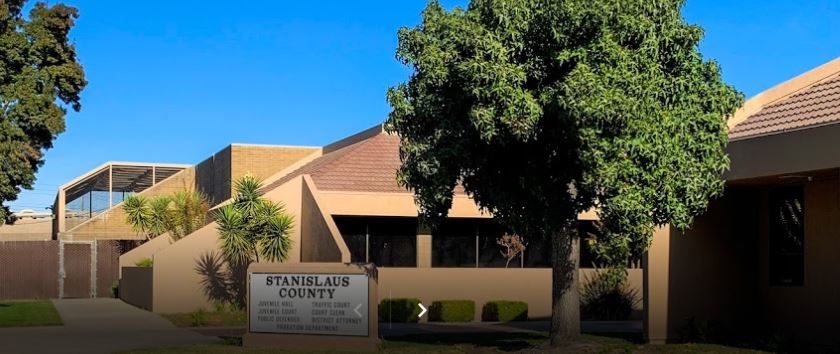Stanislaus County Superior Court – Juvenile Court
The Stanislaus County Superior Court handles a wide range of criminal, civil, family, probate, and juvenile cases for the county of Stanislaus in California’s Central Valley. One of the most important divisions of the court is the juvenile court, which deals exclusively with cases involving youth under the age of 18. This court plays a crucial role in promoting public safety while also providing rehabilitation and support services to vulnerable children and teens.
Stanislaus County Superior Court – Juvenile Court CONTACT INFORMATION
Address: Juvenile Justice and Juvenile Dependency 2215 Blue Gum Ave., Room #15 Modesto, CA 95358
Phone: 209-530-3100 Office Hours: Monday to Friday, 8:15 a.m. – 4:00 p.m. (Phone hours are from 8:15 a.m. – 3:00 p.m.)
Background on Stanislaus County Superior Court
History and establishment
The Superior Court of Stanislaus County was established in 1854 shortly after the county was founded. The court operated under the jurisdiction of the California Supreme Court and handled all manners of cases within the county. In 1879, a courthouse was constructed in the county seat of Modesto to house the Superior Court. Over the years, the court expanded to meet the needs of a growing population. Today, the Stanislaus County Superior Court operates out of three courthouse locations in Modesto, Turlock, and Ceres. There are currently 19 judges serving on the court.
Overview of court operations
The Stanislaus County Superior Court is organized into civil, criminal, family, probate, juvenile, and appeals divisions. On the civil side, the court handles cases involving claims over $25,000, contract disputes, personal injury, and more. The criminal division manages misdemeanor and felony cases, including arraignments, trials, and sentencing. Family court deals with issues like divorce, child custody, and domestic violence. The probate division oversees wills, trusts, conservatorships, and estates. Appeals are available for civil, criminal, and infraction cases.
Focus on Stanislaus County Juvenile Court
Purpose and goals
The Stanislaus County Juvenile Court handles all cases involving minors under 18 years old who are accused of crimes or suffering from abuse or neglect. The goals of juvenile court are to protect the community, hold youth accountable for crimes, and provide rehabilitation services that support positive development. The court aims to serve the “best interests” of the child while balancing public safety needs. Proceedings are kept confidential to avoid stigma and promote rehabilitation.
Stanislaus County Superior Court – Juvenile Court Juvenile Division
There are three main types of cases handled by the Stanislaus County Juvenile Court’s Juvenile Division: dependency, delinquency, and traffic cases involving minors. Understanding the basics of each type of case can help those interacting with the juvenile court system know what to expect.
Types of Juvenile Cases
Juvenile Dependency
Juvenile dependency cases involve allegations of child abuse, neglect, or situations where parents are unable to adequately care for a child. These sensitive cases aim to address the child’s safety and wellbeing.
Juvenile Justice
Juvenile justice cases involve youth who have committed violations of the law or have school attendance issues. The goal is to rehabilitate youthful offenders while also addressing any public safety concerns.
Juvenile Traffic
Traffic infractions involving minors are handled by the main Traffic Division, while more serious charges go through the juvenile justice system. The citation provides the location for resolution.
Confidentiality of Juvenile Records
Most juvenile court records are kept confidential and can only be accessed by authorized parties like the child, parents/guardians, and other approved entities. Photo ID is required to obtain in-person case information. The Clerk cannot disclose confidential details over the phone.
Retention of Juvenile Records
Juvenile records are retained for around 20 years after a minor turns 18. Individuals can petition for their records during this retention period. Off-site retrieval fees apply.
Sealing Juvenile Records
Juvenile records are not automatically sealed. To request sealing, contact the Probation Department which will file the paperwork and notify agencies if approved.
Governing Laws
Welfare and Institutions Code Sections
Key laws include Welfare & Institutions Code Sections 300 (dependency) and 601/602 (delinquency). These sections provide the legal framework for juvenile cases.
Key personnel in juvenile court
Judges
Judges in juvenile court preside over hearings and trials. They evaluate charges against minors, determine guilt or innocence, and issue orders for probation, treatment programs, or detention. Judges aim to impose consequences that balance accountability, public safety, and the child’s rehabilitation needs.
District attorneys
District attorneys represent the state’s interests in delinquency cases by evaluating police reports, determining charges, and prosecuting minors accused of crimes. They present evidence against the minor and recommend appropriate consequences to the judge.
Public defenders
Public defenders provide legal representation for minors who cannot afford a private lawyer. They argue for diversion programs, probation, or dismissal when appropriate given the charges and the youth’s circumstances. Public defenders advise minors and their families throughout the process.
Court processes for juveniles
Detention hearings
Minors arrested for delinquency may be held in juvenile hall until a detention hearing occurs, usually within 1-3 days. The judge determines if continued detention is required for public safety or to ensure the youth attends future hearings.
Jurisdictional hearings
These trials determine if allegations against a minor are true. The prosecution must provide sworn testimony and evidence to prove guilt beyond a reasonable doubt. The minor may plead guilty and waive trial. If found guilty, disposition is set for a later hearing.
Dispositional hearings
At disposition, the judge orders consequences after reviewing social study reports, family input, and probation recommendations. Options range from dismissal, diversion programs, probation terms, or commitment to a juvenile facility.
Unique programs and services
Juvenile drug court
This program provides substance abuse treatment, intensive supervision, and judicial monitoring for minors struggling with addiction who have delinquency charges. Successful completion results in dismissed or reduced charges.
Teen court
First-time minor offenders may have their peers hear the case and assign sanctions like community service, apologies, counseling, or education programs. Teen court provides accountability while limiting formal processing.
Restorative justice practices
Restorative justice brings minors, victims, and community members together to address the harm caused by a crime. Offenders hear victim impact statements and develop plans to make amends through payment, community service, or rehabilitation steps.
Trends and reforms
Reduced reliance on detention
Juvenile courts now minimize detention by expanding diversion options, releasing minors to parents pending hearings, and prioritizing probation over confinement. Research shows detention can increase recidivism.
Focus on rehabilitation over punishment
There is greater emphasis on providing minors with substance abuse treatment, mental health counseling, education support, and skill development. Punitive sanctions are used sparingly, as they have poor recidivism outcomes.
Additional Resources
Judicial Council’s Self-Help Website
For those involved with the juvenile court system, the Judicial Council’s website offers information on the process, forms, options, and videos relating to juvenile cases.
Search Court Case Records
- Stanislaus County Superior Court Case Records: Search and view civil, criminal, family, probate and traffic case records filed in Stanislaus County Superior Court. Records can be searched by case number, party name, filing date, etc.
- Stanislaus County Superior Court High Profile Case Information: Get information about high profile criminal cases being heard in Stanislaus County Superior Court, including the case status, events, documents filed, etc.
Dockets, Calendars, and Case Information
- Stanislaus County Superior Court Calendars: Look up the court calendar for a specific date or date range in Stanislaus County Superior Court. Calendars can be searched by department or judge name.
- Stanislaus County Superior Court Civil Tentative Rulings: View tentative rulings issued by the court on civil law motions in Stanislaus County. Rulings are searchable by department, judge name, case number or case title.
- Stanislaus County Superior Court Family Law Tentative Rulings: Look up family law tentative rulings issued in Stanislaus County Superior Court cases. Rulings can be searched by department, judge, case number or case title.
- Stanislaus County Superior Court Probate Notes: View probate case notes and recommendations to the judge prior to hearings in Stanislaus County Superior Court. Notes can be searched by date, case number or case title.
Published Opinions and Orders
- Attorney General Legal Opinions: Search and read legal opinions issued by the California Attorney General’s office from 1985 to present day. Opinions are searchable by keyword, year, author, etc.
- Stanislaus County Superior Court Local Rules: View the local rules for Stanislaus County Superior Court that supplement the statewide rules. Local rules provide important court procedures and policies.
Forms and Related Information
- Stanislaus County Superior Court Civil Forms: Get civil court forms required to file and respond to civil cases in Stanislaus County Superior Court. Forms, instructions and filing information are provided.
- Stanislaus County Superior Court Family Law Forms: Access family law forms required for divorce, child support, custody and other family law matters in Stanislaus County Superior Court. Forms, instructions and filing details are provided.
- Stanislaus County Superior Court Probate Forms: Download probate court forms needed to administer estates, file conservatorships and handle other probate matters in Stanislaus County Superior Court. Forms, instructions and filing information are provided.
- California State Superior Court Forms: Search for and download forms used in Superior Courts across California by form name/number, or by type of case (e.g. probate, family law, etc.). Recently updated forms are also listed.
- Interactive Online Forms: Use an online interview process to complete California Superior Court forms for family law, small claims, evictions, child support and other matters. Registration required. Fee applies.
Online Fine Payments
- Pay or Dispute City of Turlock Parking Tickets: Pay or contest parking tickets issued in Turlock online through the city website. Ticket number and license plate are required to search for tickets.
- Pay Stanislaus County Superior Court Traffic Tickets: Pay traffic ticket fines and fees for infractions charged in Stanislaus County Superior Court online through the court’s website. Ticket number and driver’s license number are required.
Self Help, Legal Research, General Information
- Stanislaus County Law Library: Get information about the law library located in Stanislaus County Superior Court, including location, hours, resources and services offered to assist with legal research.
- Stanislaus County Superior Court Alternative Dispute Resolution: Learn about Alternative Dispute Resolution (ADR) programs offered by the court, such as mediation, arbitration and neutral evaluation, which can help parties resolve disputes without litigation.
- Stanislaus County Superior Court Juvenile Case Information: Get an overview of juvenile delinquency, dependency and traffic cases in Stanislaus County Superior Court. Procedures, resources and links to related information are provided.
- Stanislaus County Superior Court Self-Help Center: Learn about the Self-Help Center providing free legal assistance to self-represented parties in Stanislaus County Superior Court. Location, hours and resources are listed.
- California Alternative Dispute Resolution (ADR) Programs: Learn about mediation, arbitration, settlement conferences and other ADR processes offered through Superior Courts statewide to help parties settle cases out of court.
Conclusion
The Stanislaus County Juvenile Court plays a critical role in responding to youth crime while promoting rehabilitation. Through its delinquency and dependency divisions, the court aims to enhance public safety and ensure the well-being of vulnerable children and teens. Ongoing reforms are diverting more minors from formal processing, minimizing detention, and prioritizing services like drug treatment, restorative justice, and teen courts. With support from dedicated judges, district attorneys, and public defenders, the juvenile court protects the interests of minors while balancing community needs. Moving forward, the court will continue adapting its practices to serve at-risk youth and keep Stanislaus County communities safe.
FAQs
Q: What kinds of cases does the Stanislaus County Juvenile Court handle?
A: The juvenile court handles delinquency cases involving minors accused of crimes and dependency cases where children are victims of abuse, abandonment, or neglect.
Q: Who works in the Stanislaus County Juvenile Court?
A: Key personnel include judges, district attorneys, public defenders, probation officers, and other court staff. There are also service providers who conduct assessments and provide treatments.
Q: What happens at detention hearings?
A: Detention hearings determine if an arrested youth should remain confined pending further hearings. Judges consider public safety and likelihood to appear at future proceedings.
Q: What are some juvenile court sentence options?
A: Sentences can range from dismissal, informal probation, diversion programs, formal probation terms, to placement out of home in some cases. Confinement is used sparingly.
Q: How can the juvenile justice system better serve at-risk youth?
A: Experts recommend focusing more on rehabilitation with services like counseling, education support, family therapy, and community-based treatment options. Early intervention and prevention are also key.
Q: How can I look up a case filed in Stanislaus County Superior Court?
A: You can search for civil, criminal, family, probate and traffic cases using the online case records search on the Stanislaus County Superior Court website.
Q: Where can I find the forms needed to file a juvenile case in Stanislaus County Superior Court?
A: The court provides juvenile-related forms such as those for delinquency, dependency and traffic matters on its website. Forms can be downloaded and printed.
Q: What are some options for alternative dispute resolution through Stanislaus County Superior Court?
A: The court offers alternative dispute resolution (ADR) programs including mediation, arbitration and neutral case evaluation. These options can help parties resolve disputes without going through litigation.
Q: How can I get help understanding court procedures and filing documents if I don’t have an attorney?
A: The Stanislaus County Superior Court has a Self-Help Center that provides free legal assistance to self-represented parties, including those with juvenile cases before the court.
Q: What should I do if I receive a traffic citation and want to pay it online?
A: Traffic citations issued in Stanislaus County can be paid online through the Superior Court’s website. You will need your ticket number and driver’s license number.




